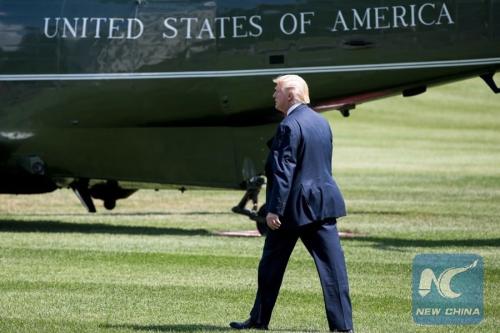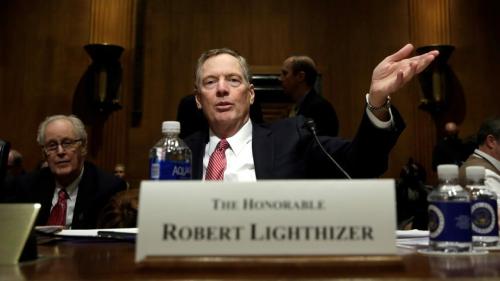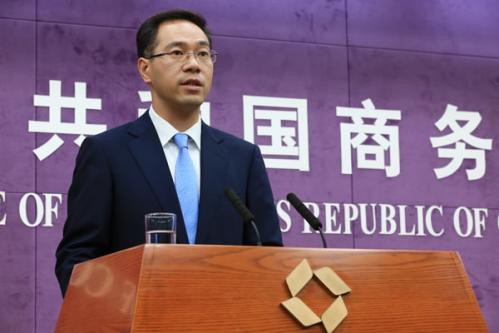It's a long-living rumor that if a technology company wants to survive the world's second largest economy, it has to turn in its key innovations.
But is it really so? Now it seems like US President Donald Trump is ready to find it out.
Trump will direct on Monday the US trade representative (USTR) to determine whether to investigate China's trade practices, with focus on "any of China's laws, policies, practices or actions that may be unreasonable or discriminatory, and that may be harming American intellectual property, innovation and technology."

Trump walks to board Marine One departing for vacation in Bedminster, New Jersey, from the South Lawn of theWhite Housein Washington DC, on Aug. 4, 2017. /Xinhua Photo
The information was provided by some White House officials to news agencies.
US Trade Representative, Robert Lighthizer, must consider whether to investigate China's trade practices under Section 301 of the US' Trade Act, which was passed in 1974 and rarely used since the World Trade Organization (WTO) came into effect in 1995.
No timetable is currently a possible investigation, but officials said the process could take as long as a year, if Lighthizer decided to move forward.

Robert Lighthizer gestures before a Senate Finance Committee confirmation hearing on his nomination to be US trade representative on Capitol Hill in Washington on March 14, 2017. /Reuters Photo
Obsolete law
"It became no longer necessary really for the United States that they have to use that law, because now we have an effective dispute settlement system under the WTO," Chad Bown, a senior fellow at the Washington DC-based Peterson Institute for International Economics, told Xinhua, adding the legal timeline of the process under Section 301 doesn't work well with the rules of the WTO.
"A decision to trigger Section 301 today is problematic because it would provide additional fuel to the already simmering argument that the Trump administration is undoing the American commitment to rules-based trade and decades of work to establish international cooperation," argued Bown, who also worked as a senior economist for international trade and investment in the White House Council of Economic Advisers and the World Bank.
Michael Froman, former USTR under the Obama administration, has also warned that the US could face retaliation if the country moves away from resolving trade disputes through the WTO and instead starts taking unilateral actions.
The Chinese Ministry of Commerce has stressed the importance of China-US trade ties and urged US authorities to abide by WTO rules in its trade measures.

Ministry of Commerce spokesman Gao Feng holds a press conference in Beijing on August 3, 2017. /Ministry of Commerce
"Any trade measures to be taken by WTO members must conform to WTO rules," Gao Feng, spokesman of Chinese Ministry of Commerce, said earlier this month, noting China and the US will push forward the bilateral trade and economic relation in the basic principle of win-win cooperation and resolve differences "through dialogues and consultations."
DPRK related?
Trump was expected to announce the investigation earlier this month, but the announcement was postponed as the White House pressed for China's cooperation on DPRK.
While China joined in a unanimous UN Security Council decision to tighten economic sanctions on Pyongyang, Trump has kept up pressure on Beijing to do more.
"We lose hundreds of billions of dollars a year on trade with China. They know how I feel," he told reporters on Thursday. "If China helps us, I feel a lot different toward trade."
But Washington does not want people to think that the DPRK tensions and the trade issue are linked.
"These are two different things," the official said, speaking to reporters on a conference call.